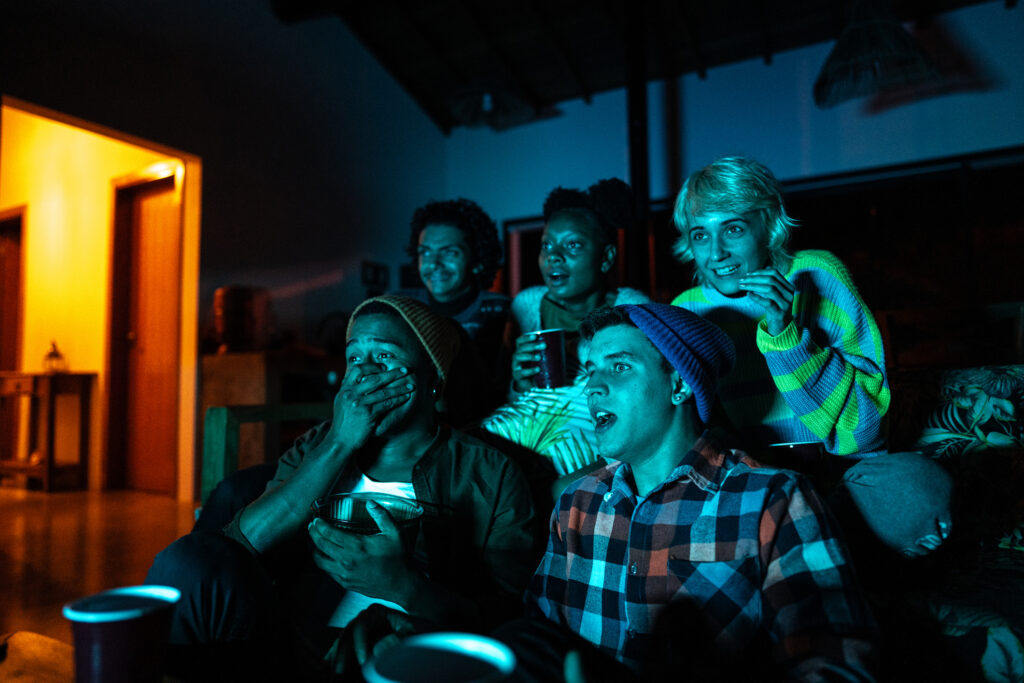Television has done more than entertain us—it has shaped the way we talk, dress, and even think. From classic sitcoms to groundbreaking dramas, TV has influenced fashion trends, slang, and even social movements. Whether it’s a catchphrase that becomes part of everyday conversation or a show that sparks important cultural discussions, TV has been setting trends for decades. Here’s how television has left its mark on pop culture over the years.
TV Created Some of the Most Iconic Catchphrases
Some of the most memorable lines in history didn’t come from books or movies—they came from TV. Whether it’s Friends’ “How you doin’?” or The Simpsons’ “D’oh!,” television has filled our conversations with unforgettable catchphrases. Even if you’ve never seen the shows, you probably recognize the lines.
Sitcoms Shaped Family Dynamics
TV families have played a huge role in defining what a “typical” household looks like. Shows like The Brady Bunch, Full House, and Modern Family have reflected and even influenced the way people see family relationships. Over the years, TV has helped normalize everything from blended families to same-sex parents.
Fashion Trends Started on the Small Screen
Before influencers took over, TV characters were the ultimate trendsetters. Think about Friends and the “Rachel” haircut, or Sex and the City making designer shoes a must-have. Even today, shows like Euphoria and Stranger Things influence everything from makeup trends to 80s-inspired fashion comebacks.
TV Shows Set the Tone for Social Change
Some of the most important cultural shifts have been sparked by TV. Shows like The Mary Tyler Moore Show challenged gender roles, The Fresh Prince of Bel-Air addressed race and class issues, and Pose brought LGBTQ+ representation into the spotlight. When TV tackles big topics, people pay attention.
Reality TV Changed the Way We See Fame
Reality TV turned everyday people into overnight celebrities. Survivor proved that drama and competition could keep audiences hooked, The Real World set the stage for unscripted drama, and Keeping Up with the Kardashians redefined what it means to be a household name. Today, reality stars are just as famous as traditional actors.
TV Made Theme Songs a Huge Deal
A great theme song can be just as iconic as the show itself. From The Fresh Prince of Bel-Air to Game of Thrones, TV theme songs have a way of sticking in our heads forever. Some songs even go viral years later, proving that a catchy opening can make a show even more legendary.
Streaming Changed How We Watch TV
Before streaming, watching TV meant tuning in at a specific time. Now, binge-watching is the norm. Shows like House of Cards and Stranger Things helped popularize the idea of releasing entire seasons at once, and now most people expect to watch TV on their own schedule.
Animated Shows Became Pop Culture Icons
Animated TV used to be mostly for kids, but shows like The Simpsons, South Park, and Rick and Morty turned cartoons into cultural powerhouses. These shows push boundaries, spark debates, and create dedicated fanbases that keep them relevant for decades.
Late-Night TV Defined Political Comedy
Talk shows used to be all about celebrity interviews, but late-night TV became a major source of political commentary. Hosts like Jon Stewart, Stephen Colbert, and John Oliver have made comedy a powerful way to discuss real-world issues, blending entertainment with education.
TV Crossed Over into Social Media
In today’s world, TV doesn’t just stay on TV. Shows spark Twitter debates, become TikTok trends, and inspire memes that take over the internet. Whether it’s The Last of Us making people cry or Euphoria setting off makeup trends, TV and social media now go hand in hand.
Television has shaped the way we talk, dress, and even think. As TV continues to evolve, its influence on pop culture only grows stronger. Whether it’s a nostalgic classic or a new viral sensation, one thing is clear—TV isn’t just entertainment, it’s a cultural force.


